The troubadour is the most aristocratic, lyrical and romantic figure of the Middle Ages. It captivated the young Lauri-Volpi in his salad days at La Sapienza university, while reading modern literature and the influence the troubadours’ western art had on romantic opera of 1800. To the young academician, Manrico symbolised a lonely and thoughtful creator of melodies played on the lute, an amorous and dreaming poet in pursuit of an ideal beauty, a roaming cavalier in a chaotic and dark era who singled himself out for feelings of family honour and chivalrous love.
With such an image of the roaming cavalier impressed in his mind, Lauri-Volpi was shocked the first time he attended a performance of Trovatore. It was sung by an aged and bearded tenor of ordinary deportment, armed with a huge sword and no lute, in search of voluminous sounds so foreign to Manrico’s poetic individuality. The aspiration of singing Manrico was a forlorn hope and youthful dream in Lauri-Volpi’s early 1920s career. The Verdian repertoires of major theatres of the world in the 1920s did not stimulate any encouragement. The most produced and performed operas by Verdi at the time were Rigoletto, Traviata and Aida.
In 1927, the manager of the Teatro Colon in Buenos Aires, Ottavio Scotto, invited Lauri-Volpi to study the arduous score of Trovatore. World audiences and critics were diffident and even hostile towards the opera, used as they were to see Manrico as an obstinate, melancholic hero dressed in rags and emitting volumes of pitiful and colourless sounds. Lauri-Volpi also was very sceptical that his dashing, easily extended and brilliant voice could adapt to a role of voluminous and monotonous sounds to which the public had been used. Nevertheless, he studied the intense score and how to interpret the role. He got ready to sing it at the Met but there were technical and staging difficulties.
It was destiny that the tenor should make his debut as Manrico at the Teatro Colon in Buenos Aires on 10 June 1927. In a city of courteous, warm, intelligent but severe and demanding operatic audiences, he had previously made his debut in Turandot, Norma, Wally, Pagliacci and Carmen. He was very popular in Argentina. There were 4000 spectators at the Colon that night, a full house.
A formidable bunch of singers co-starred Lauri-Volpi: soprano Claudia Muzio, a very sweet Leonora, a genius of exquisite sobriety in her singing and deportment. Her “D’amor sull’ali rosee” and “Quel suon, quelle preci solenni, funeste…” were sorrowful, suave and amorous. (It is no secret that the unquestionably seductive Muzio inspired a sort of amorous friendship with the young and married Lauri-Volpi, who had many traits of a dreamer). Baritone Benvenuto Franci, the fierce Count di Luna, gave authentic sounds and quivers to the Count’s wrath and jealousy. Lyrical mezzo Luisa Bertana of Argentina sang Azucena with poetic delicacy and suavity of sounds but ample voice where needed to configure the hallucinated and revengeful gypsy.
The Manrico of Lauri-Volpi was moulded on the tenor’s temperament and character: poetic, lyrically effusive, spontaneous, hopeful and heroic. In the trio finale of act I, sculptured with an incisive diction, the tenor thundered “…serbo`” on a ringing high D-flat. As the curtain fell, the surprised audience went buzzing about Lauri-Volpi’s temerity of emitting the high note never before done by any tenor in the finale of that tremendous trio.
In the cabaletta, after a titanic cry of filial love, invoking maternal salvation and threat to exterminate the infamous, Lauri-Volpi leaned the two vowels of the squillo “All’armi” on authentic and brilliant “do naturali”. The audience went berserk. The Homeric cry “All’armi” of an agile and youthful Manrico in act III and the sweetest “riposa o madre” in act IV penetrated the hearts of the 4000 present in the theatre. The same sensation and endurable memory were experienced by audiences throughout the world for the next three decades whenever Lauri-Volpi appeared onstage as Manrico.
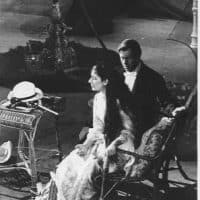
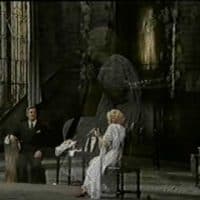

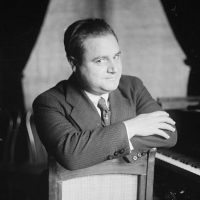
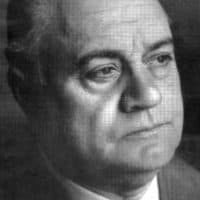
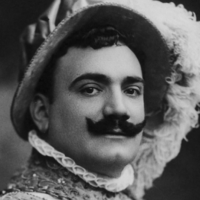
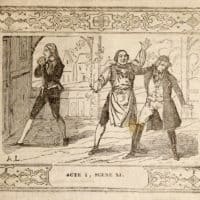
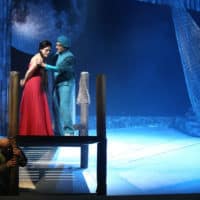
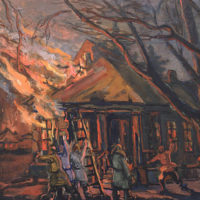

Thank you for your tribute to Lauri-Volpi’s unparalleled Manrico. I take the liberty of posting the final trio from the 1954 Amsterdam performance topped off by an astonishing high D-flat.
https://youtu.be/DqIvNF4Ylyk
What a magnificent voice. It’s not entirely my cup of tea, but the brilliance in the voice is incredible.
Lauri-Volpi was the best. Thank you so much for this post!
@Umberto: that is magnificent!